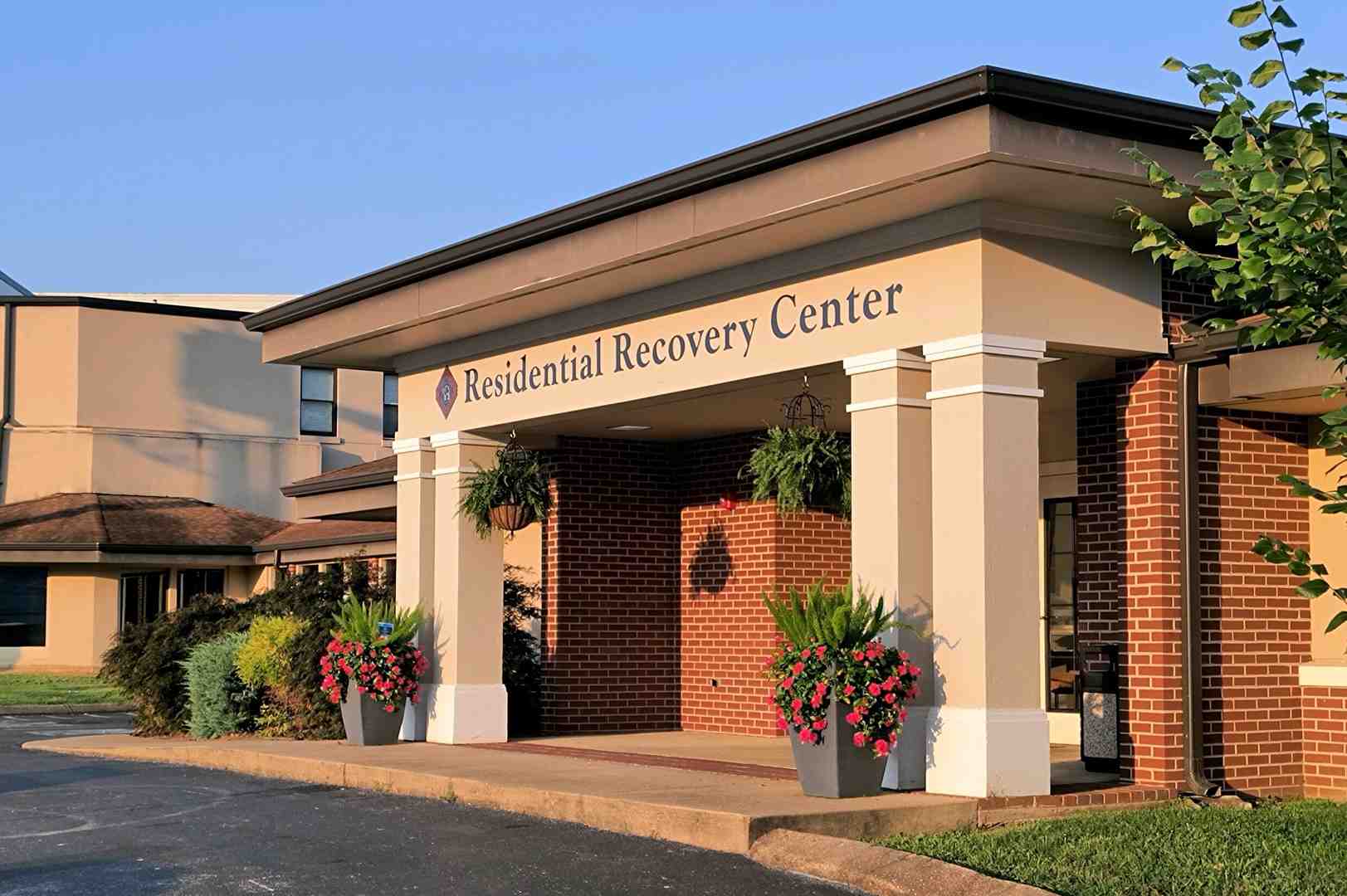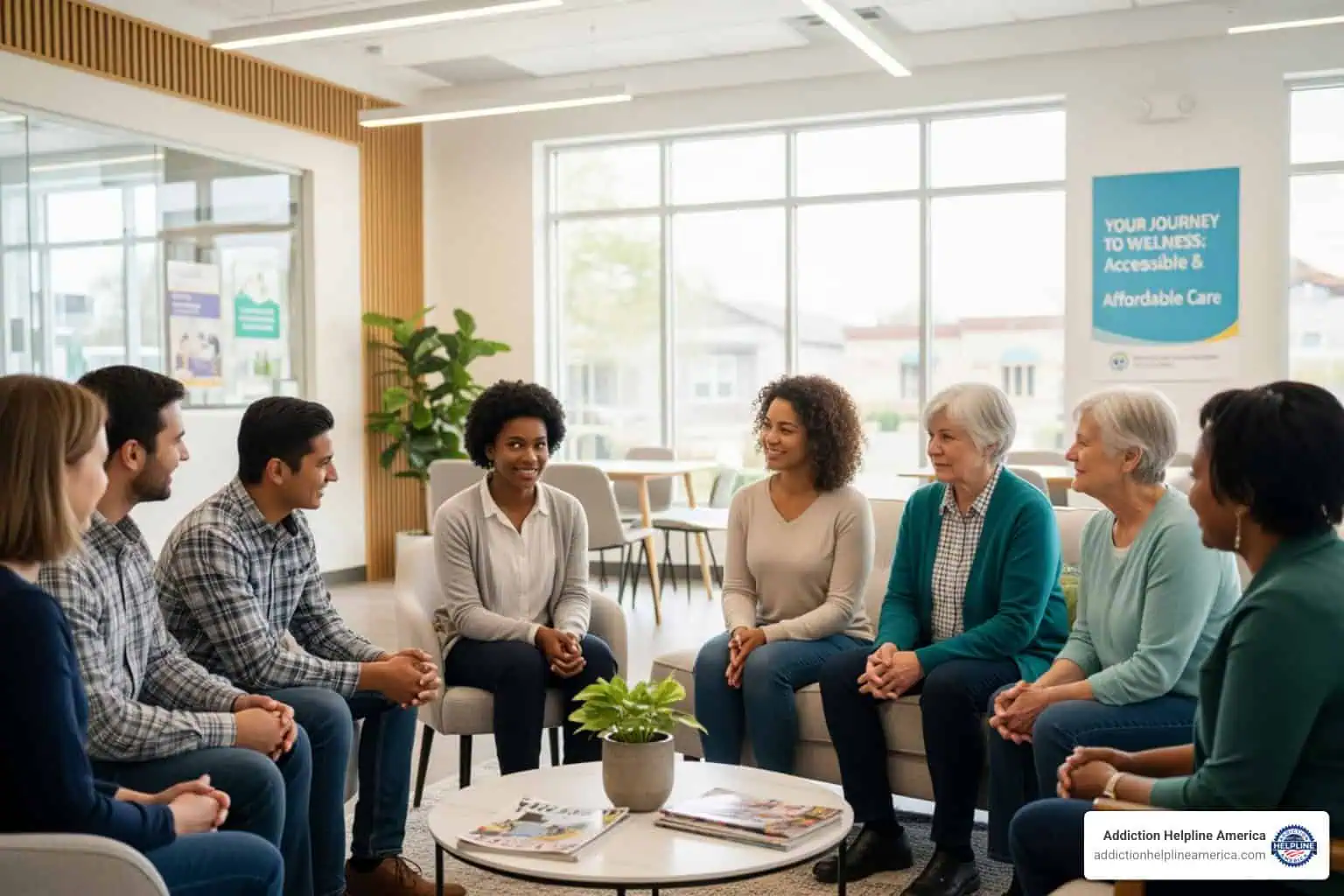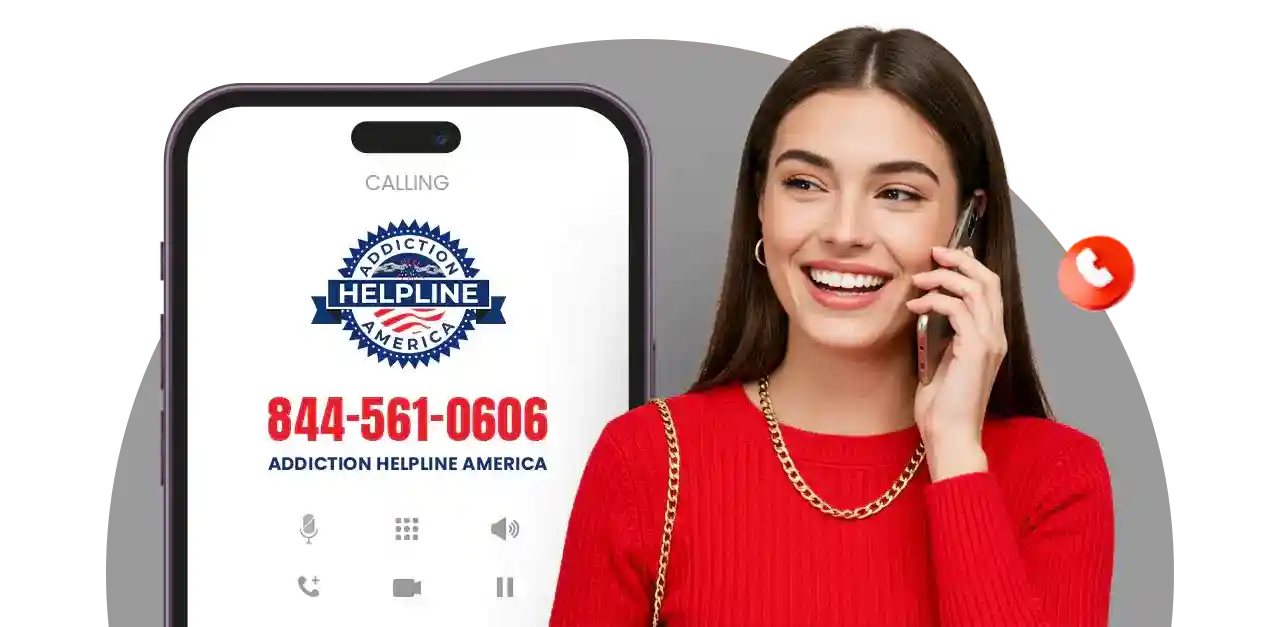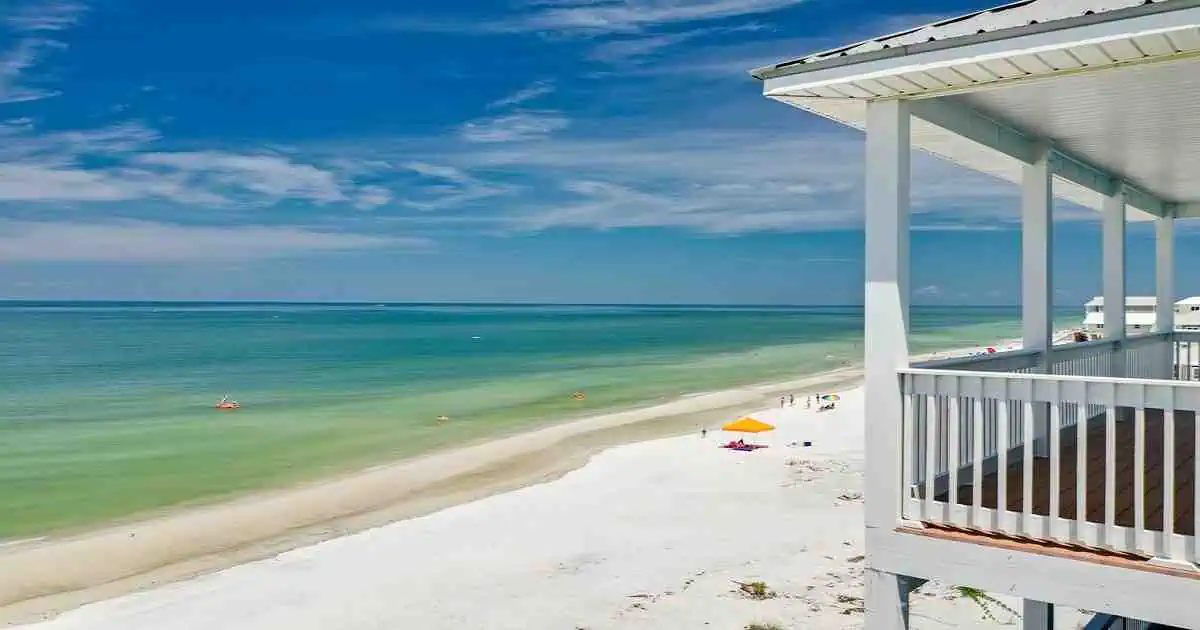
Understanding Your Options for Recovery in Florida
Rehabs in Florida offer a wide range of treatment options for individuals struggling with substance use and mental health challenges. With over 700 facilities statewide, Florida is a leading destination for addiction treatment, thanks to its mild climate, strong recovery communities, and comprehensive programs.
However, the need for treatment is urgent. Thousands of Floridians struggle with alcohol and drug use disorders, yet a significant treatment gap means most don’t receive the help they need. This is where choosing the right program becomes critical. Florida rehabs differ significantly in their treatment approaches, levels of care, specializations, and costs. Some offer luxury amenities, while others provide no-cost options. Some specialize in treating veterans or professionals, while others excel at dual diagnosis for co-occurring mental health conditions.
Understanding these differences is essential because the right fit dramatically impacts your recovery success. An inpatient program provides 24/7 supervision, while an outpatient program offers flexibility. The key isn’t finding just any program—it’s about finding your program.
At Addiction Helpline America, we guide individuals and families through this complex process, connecting them with evidence-based programs custom to their unique needs. This guide will walk you through the essential differences between Florida’s rehab centers so you can make an informed decision for your recovery journey.
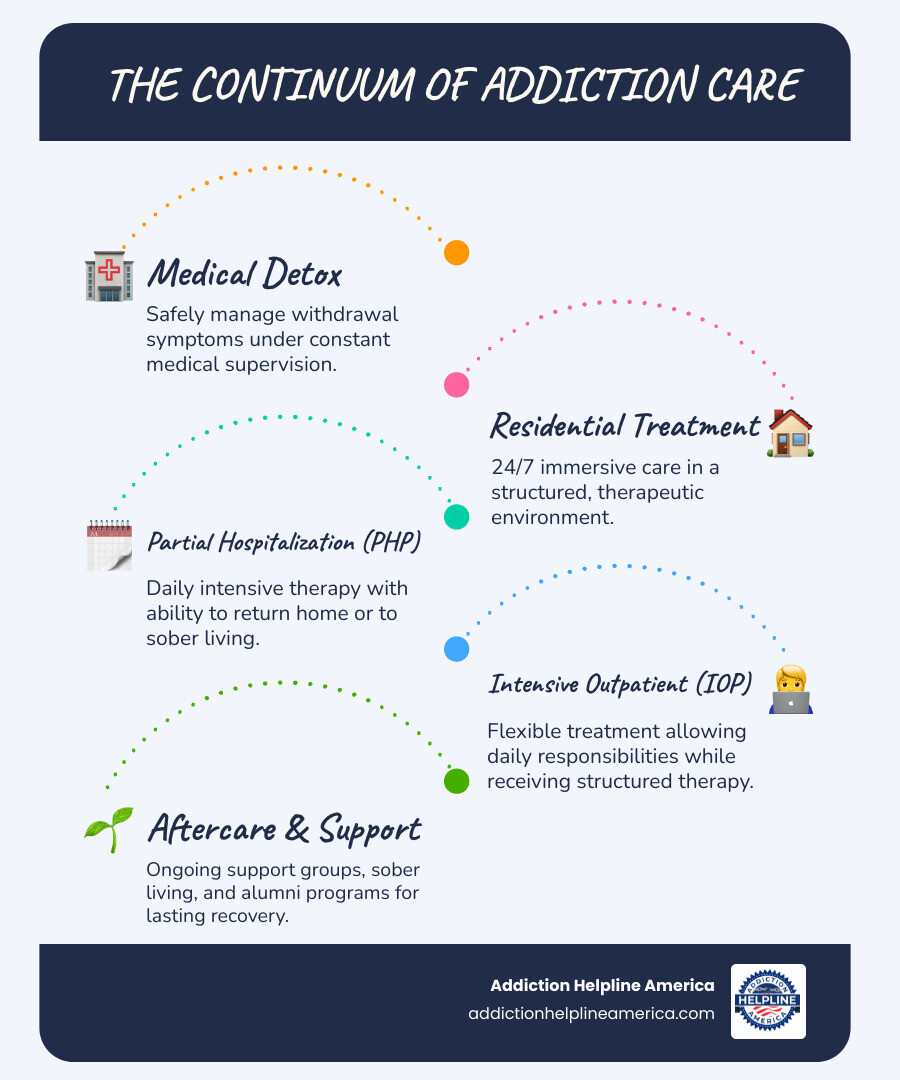
Florida’s Addiction Landscape: The Urgent Need for Treatment
Behind Florida’s scenic beauty lies a significant public health crisis. Substance abuse in Florida affects hundreds of thousands of residents, making the need for accessible treatment more critical than ever.
The numbers are sobering. In 2022, 9.5% of Floridians aged 12+ had an alcohol use disorder, and 7.64% had a drug use disorder. The human cost is even more stark: 7,827 people died from drug overdoses in 2021, placing Florida among the states with the highest overdose mortality rates, as shown in CDC data on Drug overdose mortality by state.
Despite the clear need, a staggering 74.59% of people who needed substance use treatment in 2022 didn’t receive it. This treatment gap exists for many reasons, including cost, stigma, and lack of awareness about available resources. The most common substances driving treatment admissions include opioids, alcohol, and marijuana, as detailed in the 2021-2022 National survey on drug use and health.
Call Now – Your Journey to Recovery Begins Today!

Take the first step towards a healthier life! Call now to connect with our compassionate team and start your recovery journey today. Your path to healing awaits!
Our recovery specialists are available 24/7 to provide support, and all calls are confidential and free. Reach out anytime – we’re here to help!
If you or a loved one are reflected in these statistics, know that seeking help is a courageous first step. Addiction is a treatable chronic disease, and recovery is possible with the right support. Rehabs in Florida offer evidence-based care that works, and early intervention significantly improves long-term outcomes. Whether you’re in a major city like Orlando or a smaller town, help is available. You can find more info about Orlando rehabs to explore local options. You don’t have to be another statistic; you can be a recovery story.
A Guide to the Different Types of Rehabs in Florida
With over 700 facilities, choosing the right rehabs in Florida can feel overwhelming. The best facility is the one that fits your unique needs, lifestyle, and recovery goals. Understanding the differences in levels of care, treatment settings, and program types is the first step to finding your path to healing.

Inpatient vs. Outpatient Programs: Choosing Your Environment
One of the first decisions is choosing between inpatient and outpatient care. Neither is inherently better; they serve different needs.
Inpatient programs (residential treatment) require you to live at the facility, providing a structured environment with 24/7 medical and therapeutic support. This immersive setting removes you from daily triggers, allowing you to focus completely on recovery. Stays typically last 30, 60, or 90 days. Inpatient care is ideal for those with severe addictions, co-occurring mental health conditions, or an unsupportive home environment.
Outpatient programs allow you to live at home while attending treatment sessions. This flexibility helps you maintain work, school, or family commitments. Florida has nearly 600 outpatient facilities, making it a widely accessible option. The main types are:
- Partial Hospitalization Programs (PHPs): The most intensive outpatient option, with treatment 5-6 hours a day, several days a week.
- Intensive Outpatient Programs (IOPs): A step down in intensity, typically involving 9-12 hours of therapy per week.
| Feature | Inpatient (Residential) Programs | Outpatient Programs (PHP, IOP) |
|---|---|---|
| Living Situation | Patients live at the treatment facility. | Patients live at home, attend sessions during the day/evening. |
| Support Level | 24/7 medical and therapeutic support. | Scheduled sessions, less direct supervision. |
| Structure | Highly structured daily schedule, removed from triggers. | Flexible schedule, allows continuation of work/school. |
| Intensity | Intensive, immersive therapy. | Varies: PHP (5-6 hrs daily), IOP (9-12 hrs weekly). |
| Duration | Typically 30, 60, 90 days, or longer. | Varies, often several weeks to months, with ongoing aftercare. |
| Cost | Generally higher due to room, board, and continuous care. | Generally lower, as living expenses are not included. |
| Ideal For | Severe addiction, unstable home environment, dual diagnosis. | Mild-to-moderate addiction, strong home support, step-down care. |
Outpatient programs, like the outpatient services in Tampa, are best for those with milder addictions or as a transition from residential care.
Specialized Rehabs in Florida for Unique Needs
Many rehabs in Florida offer specialized programs for specific populations who benefit from a targeted environment:
- Veterans programs address trauma, PTSD, and challenges of transitioning to civilian life. You can find more info about a VA clinic in Hollywood FL.
- Professionals programs offer discreet care for executives, healthcare workers, and others facing unique career pressures.
- Teen and young adult programs use age-appropriate therapy to address developmental challenges and peer pressure.
- LGBTQ+ affirming care provides a safe, inclusive space free from judgment.
- Gender-specific programs (men-only or women-only) can help individuals open up about sensitive topics.
- Faith-based programs integrate spiritual principles into the recovery process.
- Trauma-focused programs use therapies like EMDR to address the root causes of addiction stemming from past trauma.
Understanding the Continuum of Care: From Detox to Aftercare
Effective treatment follows a continuum of care, guiding you through each stage of recovery with the appropriate level of support.
- Medical Detox: The first step for many, providing 24/7 medical supervision to safely manage withdrawal symptoms from substances like alcohol, opioids, or benzodiazepines. You can find more info about detox in Palm Springs FL.
- Residential Treatment: An immersive phase of intensive therapy to build coping skills in a structured environment, typically for 30-90 days.
- PHP & IOP: Step-down programs (Partial Hospitalization and Intensive Outpatient) that bridge the gap between residential care and independent living, allowing you to practice new skills with significant professional support.
- Sober Living Homes: A structured, drug-free living environment that provides peer support and accountability as you transition back to daily life.
- Aftercare & Alumni Programs: Ongoing support through therapy, support groups (AA/NA), and alumni events to maintain long-term recovery and prevent relapse.
Addiction Helpline America helps individuals steer this entire continuum to find the right level of care at every stage.
Core Treatment Philosophies: What Happens Inside a Florida Rehab?
The real work of recovery happens through the therapeutic process. Quality rehabs in Florida move beyond a one-size-fits-all model to create individualized treatment plans that address the whole person—mind, body, and spirit.
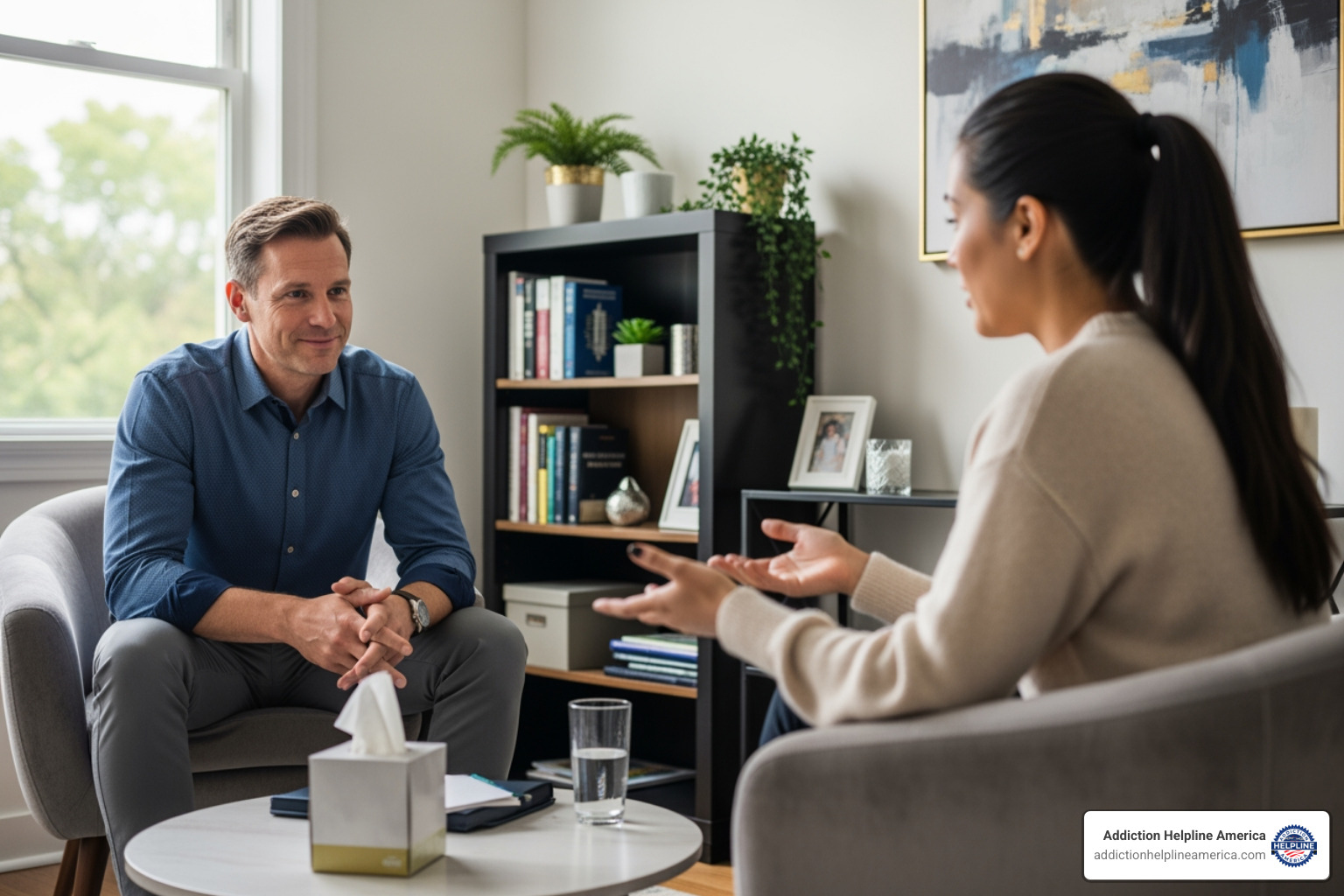
Evidence-Based and Holistic Treatment Methods
The most effective programs combine scientifically proven therapies with holistic methods that support overall wellness.
Evidence-Based Therapies:
- Cognitive Behavioral Therapy (CBT): Helps you identify and change negative thought patterns and behaviors that lead to substance use.
- Dialectical Behavior Therapy (DBT): Teaches skills in mindfulness, distress tolerance, emotion regulation, and interpersonal effectiveness, which is especially helpful for those with intense emotions.
- Medication-Assisted Treatment (MAT): Uses FDA-approved medications (like Suboxone for opioid use or Antabuse for alcohol use) in combination with therapy to reduce cravings and withdrawal symptoms, significantly improving outcomes and reducing overdose risk.
- Trauma-Informed Care: Recognizes the link between trauma and addiction, creating a safe environment to heal from past experiences without re-traumatization.
Holistic Approaches:
Many Florida rehabs leverage the state’s natural environment and incorporate activities that heal the body and mind. These can include yoga, meditation, art and music therapy, equine therapy, and outdoor activities like beach walks or nature excursions. These practices help reduce stress and provide healthy coping mechanisms. You can find More info about treatment modalities in Orlando to see how these methods are combined.
Call Now – Your Journey to Recovery Begins Today!

Take the first step towards a healthier life! Call now to connect with our compassionate team and start your recovery journey today. Your path to healing awaits!
Our recovery specialists are available 24/7 to provide support, and all calls are confidential and free. Reach out anytime – we’re here to help!
The Critical Role of Dual Diagnosis Treatment
About half of all people with a substance use disorder also have a co-occurring mental health condition like depression, anxiety, or PTSD. This is known as a dual diagnosis. The two conditions are often intertwined, with one feeding the other. For example, a person might use alcohol to self-medicate anxiety, or drug use might worsen symptoms of depression.
Treating both conditions simultaneously is critical for lasting recovery. Trying to treat addiction without addressing the underlying mental health issue is like trying to build a house on an unstable foundation. Relapse is far more likely if the root emotional pain isn’t addressed.
Quality rehabs in Florida specialize in integrated dual diagnosis treatment. This involves:
- A comprehensive assessment to identify both substance use and mental health disorders.
- Integrated therapy that addresses both conditions together.
- Medication management by a psychiatrist to stabilize mental health symptoms with antidepressants, mood stabilizers, or other appropriate medications.
- Holistic therapies that help manage symptoms of both conditions.
By treating the whole person, dual diagnosis programs provide a much stronger foundation for recovery. If you’re looking for this type of care, you can explore options like the mental health services in West Palm Beach.
Paying for Rehab: Costs, Insurance, and Finding a Quality Center
Concerns about cost should not be a barrier to life-saving treatment. There are many ways to make rehab affordable, and understanding your options is the first step.

Breaking Down the Cost of Addiction Treatment in Florida
The cost of treatment at rehabs in Florida varies based on program type, duration, location, and amenities. On average, residential treatment costs around $56,640, but this can range widely.
- Inpatient Rehab: A 30-day program can cost between $12,500 and $19,000 or more, depending on the level of care and luxury.
- Outpatient Rehab: This is a much more affordable option, averaging around $1,705 for a 30-day program. Florida is one of the more affordable states for outpatient care.
Don’t let these numbers discourage you. At least 13 facilities in Florida offer completely free treatment, and many others provide sliding-scale fees based on income, payment plans, or scholarships. The societal and health impacts of untreated addiction, as detailed in Statistics on alcohol use, far outweigh the cost of treatment.
How to Find Reputable Rehabs in Florida and Verify Credentials
With over 700 facilities, it’s crucial to choose a quality center. Look for these key credentials to ensure a facility meets high standards for safety and effective care:
- Accreditation: Look for accreditation from The Joint Commission (JCAHO), the gold standard in healthcare, or the Commission on Accreditation of Rehabilitation Facilities (CARF). These signify a commitment to excellence.
- State Licensing: All legitimate facilities must be licensed by the Florida Department of Children and Families (DCF).
- LegitScript Certification: This verifies that a provider is operating legally and ethically, which is especially important when researching online.
Navigating Insurance:
Thanks to parity laws, most Florida insurance plans, including Florida Blue (BCBS), must cover addiction treatment. However, coverage varies.
- Verify Your Benefits: Call your insurance provider to understand your deductible, co-pay, and out-of-pocket maximum. Ask about in-network vs. out-of-network providers, as staying in-network can save you thousands.
- Get Help: Don’t do it alone. At Addiction Helpline America, we offer free, confidential insurance verification. We’ll help you understand your policy and connect you with quality, in-network providers like the Proactive Recovery Center in Delray Beach.
Quality, accredited treatment exists at every price point. Prioritize credentials first, then find a solution that fits your budget.
Frequently Asked Questions About Florida Rehabs
What are the benefits of Florida’s environment for recovery?
Florida’s environment offers unique benefits that support healing. The serene natural beauty and year-round mild weather allow for outdoor therapeutic activities like beach walks, yoga, and nature therapy, which can reduce stress and improve mental health. For many, traveling to one of the many rehabs in Florida provides distance from home triggers, creating the mental and physical space needed to focus on recovery. Finally, Florida has strong recovery communities, especially in cities like Delray Beach and Fort Lauderdale. These networks of support groups, sober living homes, and peers are invaluable for long-term success.
How can families get support and use laws like the Marchman Act?
Families are deeply affected by addiction, and quality rehabs offer support for them, too. Family therapy programs help heal relationships, improve communication, and teach families how to support their loved one’s recovery without enabling. Support groups like Al-Anon and Nar-Anon also provide a crucial outlet for family members.
When a loved one refuses help and their life is at risk, Florida’s Marchman Act provides a legal tool for intervention. This law allows family members to petition a court to mandate an involuntary assessment and treatment for up to 90 days. While voluntary treatment is always preferred, the Marchman Act can be a life-saving measure in crisis situations. You can find more details by reviewing Florida Marchman Act questions.
What accreditations should I look for in a quality rehab center?
Accreditations are your assurance of a facility’s quality, safety, and ethical standards. When choosing from rehabs in Florida, look for these key credentials:
- The Joint Commission (JCAHO): The highest standard in healthcare accreditation.
- Commission on Accreditation of Rehabilitation Facilities (CARF): An international accreditor for rehabilitation services.
- State Licensing: All facilities must be licensed by the Florida Department of Children and Families (DCF).
- LegitScript Certification: Verifies that a provider is operating legally and transparently.
These credentials mean the facility is held accountable to providing evidence-based, professional care. A quality center, such as Proactive Recovery Center in Delray Beach, will be proud to display its accreditations. If a facility lacks proper licensing and accreditation, it is a major red flag.
Call Now – Your Journey to Recovery Begins Today!

Take the first step towards a healthier life! Call now to connect with our compassionate team and start your recovery journey today. Your path to healing awaits!
Our recovery specialists are available 24/7 to provide support, and all calls are confidential and free. Reach out anytime – we’re here to help!
Your Path to Recovery Starts Here
We’ve explored the diverse landscape of rehabs in Florida, from inpatient and outpatient settings to specialized programs and the full continuum of care. We’ve seen how evidence-based therapies, dual diagnosis treatment, and holistic approaches form the foundation of modern recovery. We’ve also addressed the practical concerns of cost, insurance, and finding an accredited, quality center.
The most important takeaway is this: the best program is the one that fits your unique needs, goals, and circumstances. Choosing the right rehab is an empowering first step—it’s about finding a place where you have the tools and support to build a life you don’t need to escape from.
Recovery is absolutely possible. Millions of people who once felt the same fear and uncertainty you might be feeling now have found their way forward. You can, too.
At Addiction Helpline America, we make this journey less overwhelming. We offer free, confidential guidance to help you find the right program from our trusted network of treatment centers. We can answer your questions, verify your insurance, and connect you with a program that feels right for you or your loved one.
You don’t have to figure this out alone. Your path to a healthier, substance-free life starts with a single step.
Our helpline is 100%
free & confidential
If you or someone you care about is struggling with drug or alcohol addiction, we can help you explore your recovery options. Don’t face this challenge alone—seek support from us.
Programs
Resources
Will my insurance
cover addiction
treatment?
We're ready to help
Find the best
drug or alcohol treatment
center
Are you or a loved one struggling with addiction? Call today to speak to a treatment expert.





